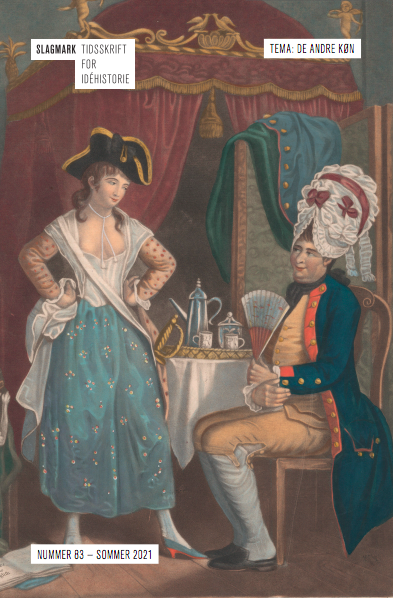Hegel i Paris – Beauvoir og den feministiske kritiks dialektiske arv
DOI:
https://doi.org/10.7146/slagmark.vi83.144204Keywords:
Beauvoir, contradiction, critique, feminist philosophy, French HegelianismAbstract
While it is well-known that the intense albeit short-lived Hegel renaissance of the 1930s’ and 1940s’ France had a huge influence on later intellectual currents of the 20th century, its importance to Simone de Beauvoir is often left unnoticed or reduced to her appropriation of the master/slave dialectic. This paper argues that Beauvoir – who came to know Hegel through the work of Alexandre Kojève as well as her own studies during the war – in fact, makes recourse to Hegelian dialectics in her conceptual composition of the ‘woman problem’ in The Second Sex. The paper identifies four figures of femininity, from the abstract mystique of the ‘Sphinx’ to the internal conflict of ‘The Little Mermaid’, and shows how the negative determinations culminate in a figure of contradiction, which implies that we may interpret The Second Sex as a work of critical thought. This means that the Hegelian legacy of feminist critique has as its objective an emancipatory project rather than equality





